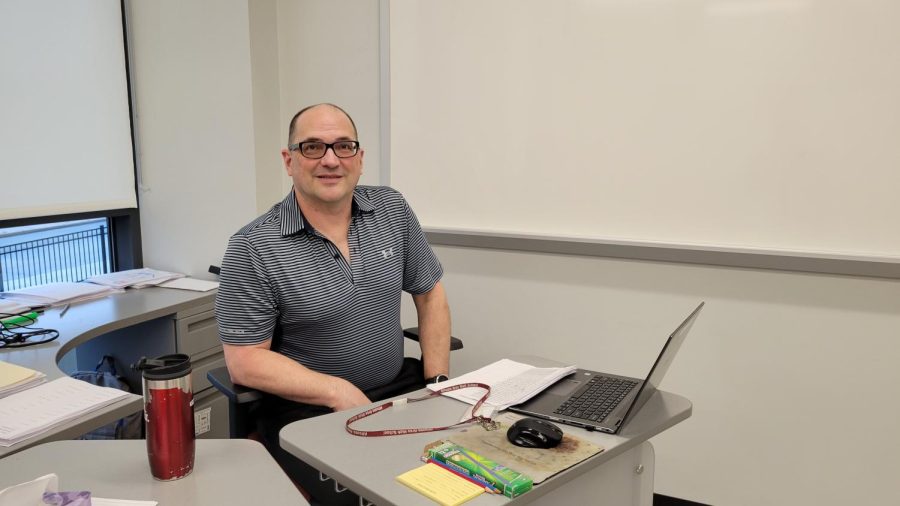Ken Balough
Name
Ken Balough
What was your highest rank?
First Lieutenant.
Which branch were you in?
Army Transportation Corp.
What Military Occupation Specialty did you have?
I was a Transportation Officer.
Why did you choose that branch?
When I was in college, they had a Reserve Officer Training Corps (ROTC) program, and the major at the college came up and said, ‘hey do you want to apply for an ROTC scholarship?’ I didn’t think I’d get it, and I expressed that. He said, ‘why don’t you try? You’re already expecting no for an answer.’ So I went ahead and tried and got the scholarship, so that’s how I ended up in the Army.
How long did you serve?
Four and a half years.
How long ago did you serve?
I got out of the military in 1990.
How did you end up becoming a teacher after serving? Was that your initial plan after serving or did it change?
No, after I left the military, I worked for Federal Express for a number of years. And then my wife and I had a daughter. I stayed home, took care of the house and kids, and then I had an opportunity to go back to school to get certified to teach.
Is there anything you remember about your time in the service?
It’s a lot of discipline; it’s physically demanding. You become a stronger person from it.
I’m afraid of heights, and I was asked if I wanted to do Air Assault school, and I asked them what all it involved, and they said ‘repelling.’ They also told me that I got to work with helicopters, which I thought was cool, so I agreed. What they forgot to mention was that I had to repel out of the helicopter. If I had known that, I would’ve said no. I was actually more afraid of the drill instructor than I was of the heights coming out of the helicopter. I’m glad I did it. Would I jump and do it again? No. It was a good experience. The other thing with the military is if you have any interest in travel, it’s a great way to get over to another country. You’re still working, but on the weekends, when you have time off, you can go out and enjoy the country instead of trying to jam everything you want to do in that country in two weeks on a vacation. The experience is very helpful. With government jobs, any veterans will have a slight edge over anybody else that’s applying for the job. If two people are going for a job and they’re both equally qualified, but one has military experience and the other one does not, the person with military experience usually gets the job.
Where are some of the places you’ve been?
In the United States, I was stationed in North Carolina for a little bit, I went to Fort Eustis, Va., Fort Rucker, Ala. and even Fort Knox, Ky. I got to work on tanks there.
As far as overseas, I was stationed in Mannheim, Germany, and I spent a little over three years over there.
What does being in the military mean to you?
It’s a service to the country. You’re giving back and trying to protect the country. I think it’s needed. I don’t know if it’s necessarily for everybody. But for someone young, starting out, not 100% sure what they want to do, it would be a good starting point to gain some experience as far as discipline. Depending on what branch you’re in, you may figure out very quickly that this is the direction that you want to go, or no, don’t particularly want to do this. So whenever you’ve put in your time, and you’re looking for a civilian job, you possibly have a possibly better idea of what you’re looking for.
It’s a good experience. It’s a good way to get out there and get some experience. If you’re not 100% sure you want to go to college, but you put in four years, you get qualified for the G.I. bill. And then, afterwards, if you do decide to go to college, you have that money there for you. So you’re not paying as much out of pocket.
Any tips for students going into basic training?
Best tip would be to make sure you’re in shape. You are going to be running anywhere from two to four miles every day for training. Make sure you’re doing push-ups and sit-ups to get in shape.
Your sleep pattern is definitely going to change, because they like to do things early in the morning, whereas most kids would rather stay up until midnight or after, and then sleep in until mid-morning or later. That would be a big adjustment.
And don’t be a picky eater, or you’ll lose a lot of weight.
